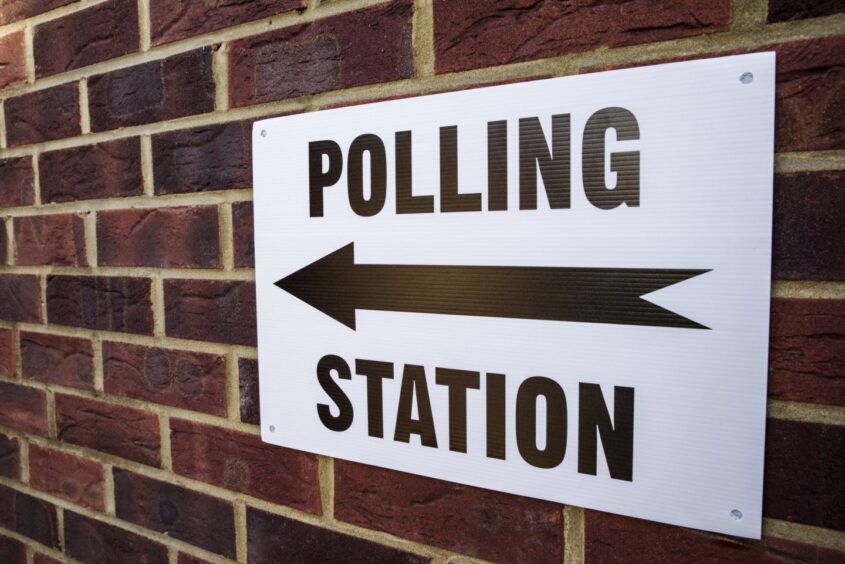Taxation conversations are dominating boardrooms across Scotland in a way not seen for years.
We don’t have to look far to understand why businesses and citizens are voicing concerns more publicly over increasing tax burdens.
The latest Scottish Chambers of Commerce business tracker reported tax as one of the leading concerns among businesses throughout the country. So what is driving this?
Let’s take Westminster. Quite simply, this has been the biggest tax-raising parliament since records began, resulting in historically high levels of UK tax revenues.
UK tax take up four percentage points since last general-election
Current forecasts show taxes will amount to around 37% of national income, compared to 33% at the time of the last general-election – that’s an increase of £100 billion, or £3,500 extra per household.
What has contributed to this major shift?
Well, the main rate of corporation tax was changed from 19% to 25% and a new levy on the profits of energy companies was introduced.
Freezes to various income tax and national insurance thresholds have also played their part.
Counting the cost of Covid
These policy changes mean the overall level of taxation will increase by more over this parliament than under any previous government since records began in the 1950s.
The Covid-19 pandemic represented the most significant public spending interventions and economic inertia most of us have ever experienced, and certainly not seen since the Second World War. This has been a major factor behind some of the decisions on tax.
But, digging further, this attribution only explains some of the tax rises. In reality, tax increases are linked to the UK Government’s penchant for higher spending on areas such as the National Health Service.
Manifesto commitments come with a price tag and this is already playing out in the political debate.
For example, the Conservative Party in its 2019 manifesto pledged to “review alcohol duty to ensure our tax system is supporting Scottish whisky”.
But it instead went on to hit the industry with a 10.1% tax rise in last year’s Spring Budget, growing the tax burden to 73% of the average bottle.
The Labour Party has rolled back on its £28bn green pledge which has been met by frustration from campaigners.
And the party’s intention to increase the rate of the windfall tax (energy profits levy) and hence the overall tax take on producers from 75% to 78% has been met with anger from businesses.
Cross-border tax disparity
From a Holyrood perspective, the dust has not quite yet settled from the December Budget. Largely viewed as anti-business, the first minister’s prospectus has widened the tax disparity between Scottish and UK taxpayers.
For example, someone earning £100,000 in Scotland will pay £3,346 more than taxpayers elsewhere in the UK. The divergence is no longer minor but material, and has the unfortunate byproduct of feeding the narrative that Scotland is becoming an uncompetitive place to do business.
Half of Scots feel Scotland does not have a good policy environment for business.”
This is a view which is not just coming from businesses but, concerningly, also shared by the public.
A recent poll by Survation/True North claimed half of Scots feel Scotland does not have a good policy environment for business.
The concerns are completely valid. On top of increasing personal taxation for Scots workers, the retail sector north of the border is in line to potentially face a new tax.
A single paragraph tucked away in the Scottish Budget revealed ministers are considering whether to reintroduce a business rate surtax for retailers.
This is a major concern and would add more costs to retailers at a time when the sector is already battling with challenges including struggling footfall, high energy bills and suppressed consumer spend.
A new surtax would come on top of an already onerous rates burden.
Many retailers already pay more than for comparable premises down south. A new levy would be wholly at odds with the Scottish Government’s pledge to “maintain a competitive non-domestic rates regime” and to “use business rates to boost business”.
Tax trajectory ‘concerning’
Of course, all governments have their priorities and choices to make.
Politicians will tell us that, although overall taxation in the UK is high by historical standards, compared to other developed countries, we are generally ranked in the middle of taxation league tables, with Denmark leading the pack. However, the trajectory is concerning.
With a general-election fast approaching, political parties must tip the balance in favour of entrepreneurship, job creation and investment, not more regulation and higher taxes.
Given the public and business community share concerns about Scotland’s declining competitiveness, now is the time to change the narrative and restore our reputation as an entrepreneurial and business-friendly nation.
Liz Cameron is chief executive of the Scottish Chambers of Commerce.





Conversation